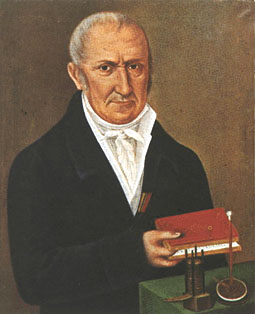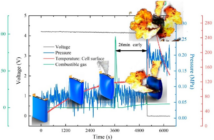
Alessandro Volta was an Italian Physicist born on 18th February 1745 in Como, Italy. He built the first device that could produce a continuous supply of electric current, i.e. a battery. So he is called the father of the modern battery.
Education
Volta was born in a wealthy noble family. He could have any education he wished for, but he chose to drop his formal studies and delve into the fascinating field of electricity. At that time, electricity was a new phenomena and scientists were conducting experiments the world over to understand it. Volta joined the bandwagon and started conducting his own experiments by the age of 16.
Inventions and Achievements
Alessandro Volta invented an electrophorus in 1775, which could produce static electricity and transfer it to other objects as well. After dabbling with static electricity, he gave the world his most famous invention, which made him immortal, the voltaic pile. Voltaic pile was the predecessor of the modern day battery. You can read all about it here in another post. Napoleon was so impressed by his work that he made him a Count.
In 1769, Volta wrote a paper – “On the forces of electric fire,” in which he proposed his own theory of the electrical phenomena. He also isolated methane gas from swamps in 1776. He studied the chemistry of gases from 1776-78.
Volta also studied a system’s ability to hold or store electricity, called capacitance. He proposed his Law of Capacitance, which proved path-breaking in later years during study of electric potential difference. To honor his work, the SI unit of electrical potential (what we call voltage in day-to-day terminology) was named volt.
Career
Though Volta lacked a proper University degree, in 1774 he became a professor of Physics at the Royal School, Como. In 1779 he became a professor of experimental physics at the University of Pavia, from where he retired in1819. The chair suited his temperament and gave him freedom to do what he loved the most – carry out experiments.
Alessandro Volta was not a man to run after name and fame. He led a quiet life at his estate in Como after retirement. He passed away on March 5, 1827, leaving behind a rich legacy of pioneering work for generations to come.
Related Posts:
Voltaic Pile: First Electrochemical Cell



